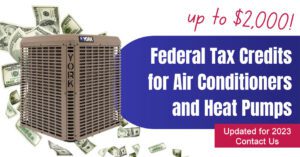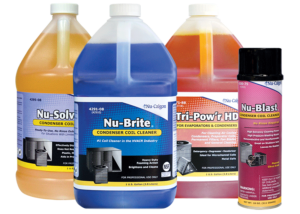One of the most frequently asked questions we get from customers who need to install a new AC unit is, are high efficiency air conditioning units worth the price of installation? In this helpful guide to high efficiency air conditioning systems we break down all the facts and information you’ll need to create an energy efficient home or business in Fort Lauderdale, Florida.
QUICK FACTS:
- Heating, ventilation, and air conditioning account for over 40% of your utility bill.
- Each degree setting below 78°F increases cooling costs by up to 8%.
- Florida’s residential electricity rates average $0.1198/kWh in 2021, 1.87% less than the US average.
- Upgrading from a 9-SEER to a 13-SEER system can cut air conditioning costs by over 30%.
TERMS TO HELP GET YOU STARTED:
- Ton: A measurement of size used to determine cooling capacity.
- HVAC: Heating, Ventilation, and Air Conditioning.
- BTU & kWh: British Thermal Unit & kilowatt-hours.
- SEER: A measure of efficiency for air conditioning units; higher SEER means greater energy efficiency.
- SHR: A measure of efficiency for the ability of air conditioning systems to remove moisture; higher SHR means less humidity removal.
- Air handler: The indoor unit that moves (forces) air through the heating/cooling system.
- Cooling load & Load calculation: Measurements to determine the appropriate system size for a structure.
- Condenser: The outdoor unit that keeps the refrigerant cool.
- Heat Pump: An air conditioner with a valve for switching between cooling and heating modes.
- Supply & Return: Components for bringing in and drawing out conditioned air.
WHY SHOULD I BE CONCERNED ABOUT THE EFFICIENCY OF MY AIR CONDITIONING? The HVAC system is the largest consumer of energy in a typical Florida home, representing over 40% of energy use and utility bills. Properly maintaining and optimizing the system is crucial due to factors like insulation, system efficiency, shading, window quality, and duct integrity. This helps extend the life of your air conditioning unit and avoid having to call for a AC repair in Fort Lauderdale. Choosing a skilled contractor is essential for achieving the system’s designed efficiency, including proper sizing, thermostat selection, installation, commissioning, and ductwork sealing.
ISN’T BIGGER BETTER? Sizing matters when it comes to air conditioning units. Optimal sizing ensures better humidity control and energy savings. Oversized units may offer faster cooling but come with downsides such as increased costs and compromised dehumidification. Proper AC maintenance is a key component of close-sizing, ensuring efficiency during peak days.
WHAT EXACTLY IS SEER? The Seasonal Energy Efficiency Ratio (SEER) rates the cooling efficiency of HVAC systems. Federal regulations mandate a minimum SEER of 13.0 for most residential air conditioners. While a high SEER is advantageous, other factors like leaky ductwork can affect overall efficiency. Homeowners should be aware that SEER alone doesn’t guarantee efficient air distribution.
SO A HIGH SEER SYSTEM WILL ALSO TAKE CARE OF THE HUMIDITY IN MY HOUSE, RIGHT? Not necessarily. Sensible Heat Ratio (SHR) is crucial for understanding the moisture-removal capability of air conditioning systems. A SHR of 0.7, for instance, indicates that 70% of the unit’s load is for cooling, and 30% for removing humidity. Factors like outdoor air infiltration and household activities contribute to indoor humidity. High SEER units may lack efficient humidity removal, emphasizing the importance of selecting a unit that aligns with calculated latent loads.
HOW DOES IT ALL ADD UP? Balancing SEER, SHR, and system tonnage is essential for maintaining indoor air quality. An oversized air conditioner may cool a home quickly but struggles to effectively remove moisture, resulting in a cool yet “clammy” environment. Homeowners may compensate by lowering the thermostat, increasing cooling bills by up to 8%. Achieving a harmonious balance ensures efficient temperature and humidity control.
WHAT ARE SOME SHORT-TERM SOLUTIONS TO IMPROVE THE EFFICIENCY OF MY EXISTING SYSTEM? The U.S. Department of Energy recommends immediate steps for enhancing efficiency:
- Setting the thermostat at 78°F or higher.
- Using bath and kitchen fans sparingly during AC operation.
- Regularly inspecting and cleaning indoor and outdoor coils.
- Checking and adjusting the refrigerant charge.
- Reducing the cooling load through cost-effective conservation measures, such as shading windows and minimizing heat-generating activities.
DURING MOST OF THE COOLING SEASON, KEEP THE HOUSE CLOSED TIGHT DURING THE DAY. DON’T LET IN UNWANTED HEAT AND HUMIDITY. This proactive approach helps minimize the cooling load on the HVAC system, promoting energy efficiency.
TRYING NOT TO USE A DEHUMIDIFIER AT THE SAME TIME YOUR AIR CONDITIONER IS OPERATING. THE DEHUMIDIFIER WILL INCREASE THE COOLING LOAD AND FORCE THE AIR CONDITIONER TO WORK HARDER. Coordinating the use of dehumidifiers with the AC operation is crucial to prevent additional strain on the system.
In addition:
- Consider installing ceiling fans for improved air circulation.
- Install a programmable thermostat for scheduling optimal heating and cooling periods.
- When ready to invest in a new air conditioning system, keep essential factors in mind for long-term efficiency.
WHEN I’M READY TO INVEST IN A NEW AIR CONDITIONING SYSTEM, WHAT SHOULD I KEEP IN MIND FOR THE LONG TERM? AC COMPONENT LOCATIONS: Central HVAC systems consist of crucial components like the air handling unit (AHU) and condenser. Placing the AHU in a conditioned space ensures a more favorable environment, optimal air flow, easier maintenance, and fewer air leaks. Proper clearance for the outdoor unit (condenser) is essential, following manufacturers’ recommendations.
QUESTIONS THE HVAC CONTRACTOR SHOULD ASK YOU: A comprehensive assessment by HVAC contractors is vital when determining the right system for a home. Essential questions include inquiries about the existing system, comfort preferences, specific issues, lifestyle, and future plans for the home. Licensing, training, and experience are critical considerations when choosing a contractor.
Other Considerations:
- Request a calculation of your savings to understand the complete cost of ownership.
- Inspect ducts for leaks and compatibility with the system.
- Evaluate your system’s performance with diagnostic equipment.
- Consider a house pressurization test to detect potential issues with fuel-burning equipment.
- Replace both indoor and outdoor units for optimal efficiency.
Obtain a written contract: A written agreement ensures transparency and details equipment, services, and warranties. While weighing costs, remember that the lowest price may not always equate to the best value. Prioritize easy maintenance by ensuring accessible components for cleaning and inspection.
REFERENCES AND RESOURCES: For further exploration of energy-efficient homes and HVAC systems, consider the following resources:
- “Consumer Guide to Home Energy Savings” by J. Amann, A. Wilson, & K. Ackerly.
- Florida Building Code: Energy Conservation, 7th Edition, 2020.
- “Energy Efficient Building Construction in Florida” by C. Miller, J. Sullivan, and S. Ahrentzen.
- Southface Energy Institute and the U.S. Department of Energy offer valuable insights.
- https://edis.ifas.ufl.edu/publication/FY1026





